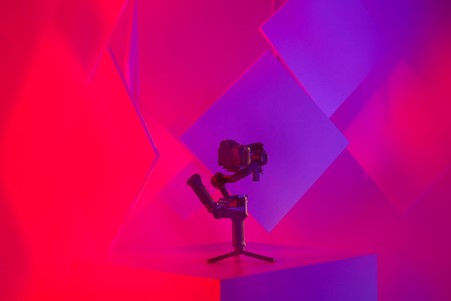There are not many industries left that didn’t have to face artificial intelligence in one way or another. Film industry is no exception. AI in film is used as a tool in different stages of production – from writing a script to predicting the success of the movie.
The Representation of AI in Film
It’s fascinating to explore not only how AI in film is being used nowadays but also how it has been portrayed in some of the earliest movies. According to Pictory.ai, while early films often portrayed AI as a fearful, controlling force, over time the portrayal evolved – AI began to be shown as more humanized.
Metropolis, released nearly a century ago (1927), was the first feature-length science fiction movie. The Decoder unveils that this art piece was a huge inspiration to the creators of the science fiction hits of the Matrix franchise films and Blade Runner (1982 & 2017).
In the 21st century, one of the most unique examples of AI in film is Her (2013). Film follows a man who develops a relationship with an artificially intelligent virtual assistant personified through a female voice.
What Are the Main Benefits of AI in Film?
We, as a society, are still sceptical about how to approach the integration of artificial intelligence into different industries. With every change, there is uncertainty. Still, it is important to note that AI in film production isn’t about replacing our creativity or stealing our jobs. Actually, it is more about enabling people, who work in film. AI helps eliminate administrative tasks and get creative juices flowing!
Main areas that are advantageous because of AI in film:
- Casting. AI in film unlocks the potential to find the next superstars of the industry. It can help by analysing preexisting data of actors and marking trends.
- Location scouting. Another example of a useful data analysis – AI can be used to track weather and traffic predictions, making the preparation and shooting process seamless and greatly time managed.
- Script writing. Content itself is no exception! Some directors need help for ideas, some need challenges for already written scripts. For the latter, AI excels at asking questions that helps the creatives to make the characters of the movie even more interesting and layered.
- Visual and audio effects. More and more production companies save on their budgets by using AI in film. Now, it is much easier to de-age, create realistic face swaps of actors. In terms of music, AI-based composition tools are becoming a reality, since developing music patterns that adapt to the movie environment is possible nowadays.
- Advertising. After the movie is finished, AI could be an assistant in marketing endeavours. Analysing aspects like audience bases and interests may indicate what kind of campaign could be the biggest hit for the movie.
Final word
All in all, AI in film can be beneficial by enhancing visual and audio effects, streamlining production processes, and, most importantly, empowering industry professionals to save time and focus their creative energy where it matters most.
If you are interested in this topic, we highly suggest you check out these articles:

